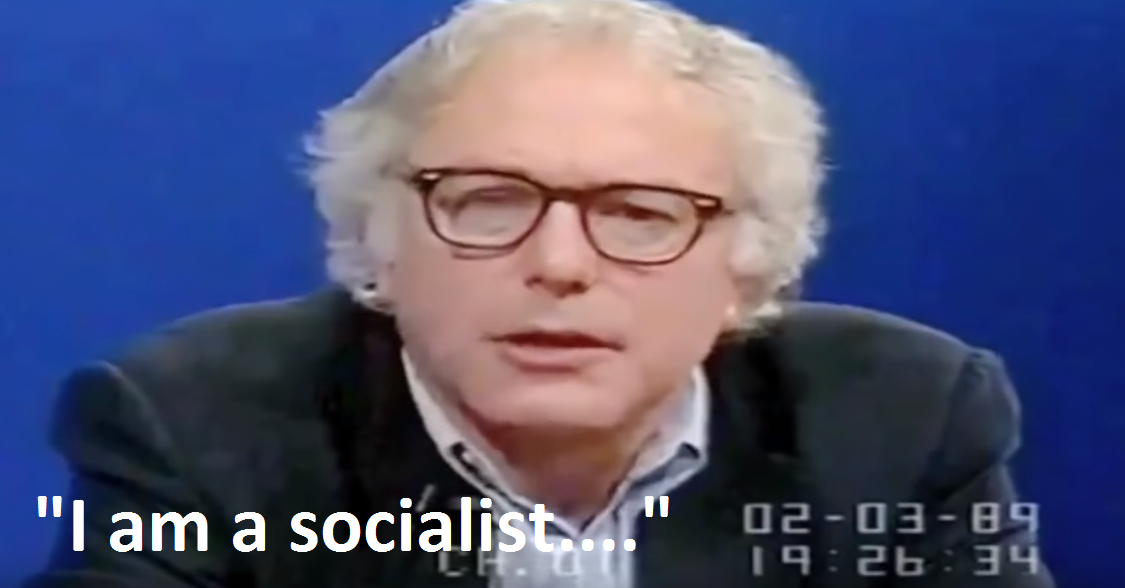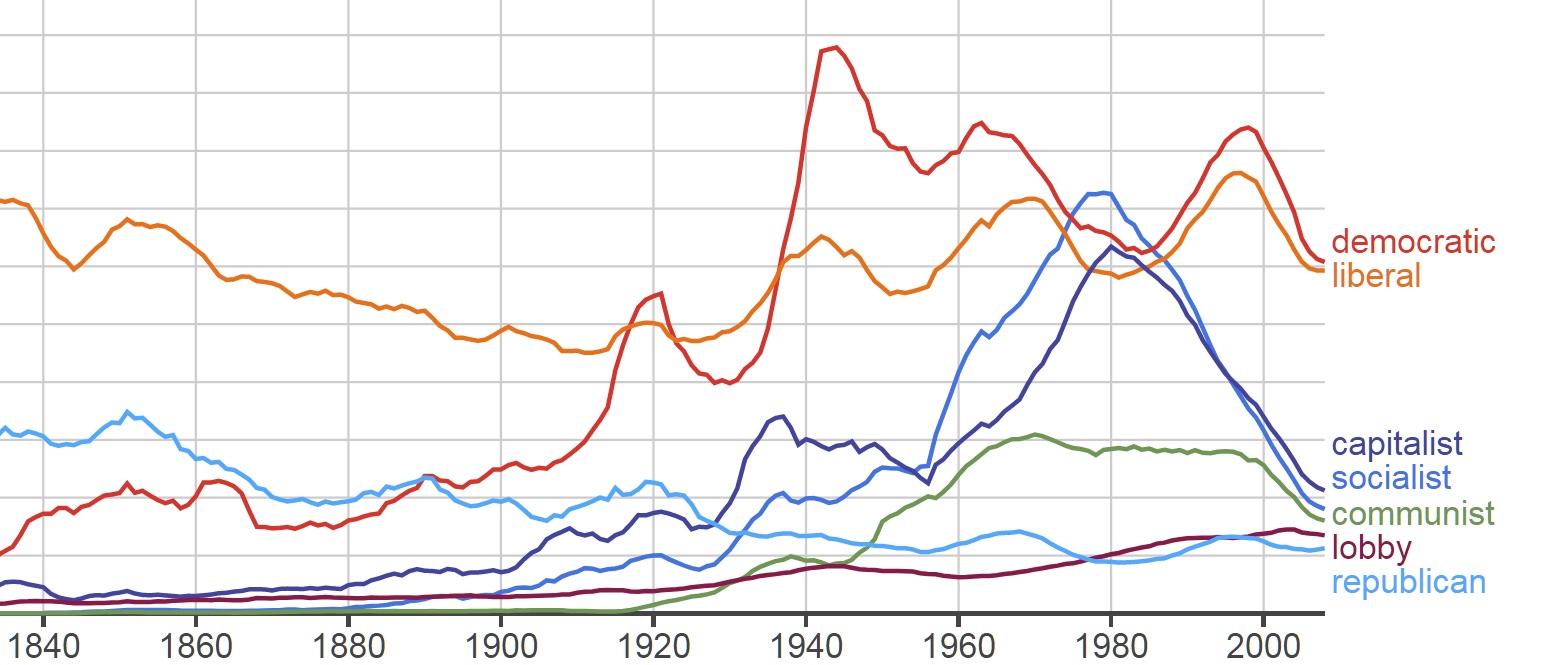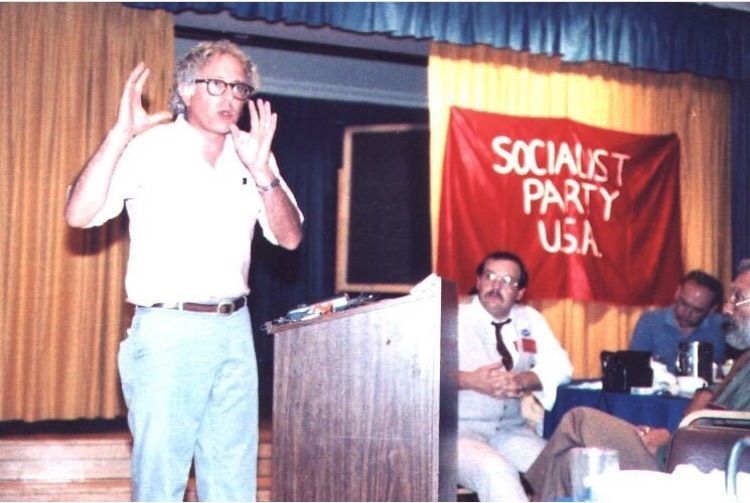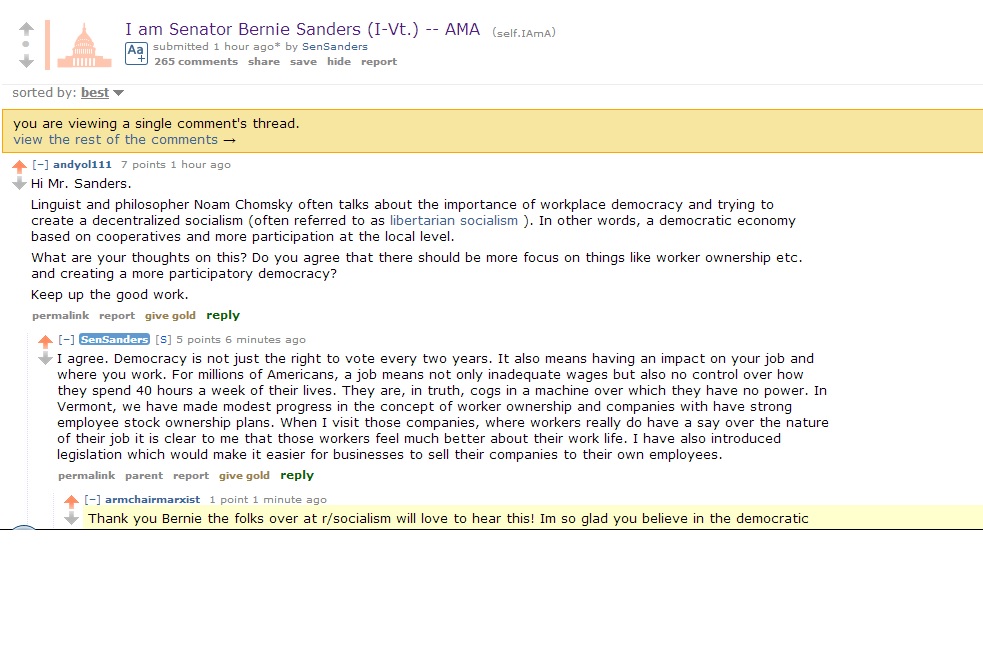Why is it that Bernie Sanders always called a "socialist"?
I think getting a quick history lesson to get some context might help explain how "socialist" is used in US media.
First, I want to highlight the long history of anti-(anti-capitalism); second, show how anything anti-capitalism is generally conflated; and third, how this is the case in the present day.
Discussing communism might seem like a detour, but bear with me for a moment. I'll start with The (first) Red Scare (1917-1920):
Political scientist, and former member of the Communist Party Murray B. Levin wrote that the Red Scare was "a nationwide anti-radical hysteria provoked by a mounting fear and anxiety that a Bolshevik revolution in America was imminent—a revolution that would change Church, home, marriage, civility, and the American way of Life".
Around the time of the second world war McCarthyism (~ second red scare) took hold:
During the McCarthy era, hundreds of Americans were accused of being communists or communist sympathizers; they became the subject of aggressive investigations and questioning before government or private industry panels, committees and agencies.
You might notice that the above two quotes only reference communism. I'll discuss this a bit more below, but I want to continue the walk through history with a quote from wiki page on the history of socialism in the United States:
COINTELPRO [(1956–1971)] was a series of covert and at times illegal[189] projects conducted by the United States Federal Bureau of Investigation (FBI) aimed at surveying, infiltrating, discrediting and disrupting domestic political organizations[190] FBI records show that 85% of COINTELPRO resources targeted groups and individuals that the FBI deemed "subversive",[191] including communist and socialist organizations; ...
The point is, there's a long history in the US of government responses to anti-capitalist movements, as these are generally not viewed favorably. There's a lot more that could be said (labor movements; class; race & racism; gender, to name a few related issues), but that's a rough overview.
The second point I wanted to address was the conflation of anti-capitalist terms. I pointed out that two of the quotes only mentioned communism, but actually all of the above wiki pages can be found on the history of socialism in the US wiki page. I wanted to bring this up to point out that the government response conflates anti-capitalist movements. The same wiki page notes that
The widespread use of the word "socialism" as a political epithet against the Obama government by its opponents caused National Director Frank Llewellyn to declare that "over the past 12 months, the Democratic Socialists of America has received more media attention than it has over the past 12 years"
Even though the Obama administration and most leftists agreed that his administration was not socialist. The source for this claim is a Chicago Tribune article, which goes on to say:
To most, socialist policies are synonymous with any expansion in government spending (although many capitalist nations funnel more of their gross domestic product through the public sector than the U.S. does). source
Here's a foxnews article which defines socialism as communism, (though I think the author was trying to distinguish the two):
There was a time in American politics when the term "socialism" conjured up images of the Cold War, the U.S.S.R, Joseph Stalin and Karl Marx, nuclear threats, government domination of private industry and gulags. For most Americans who came of age during the height of the Cold War, who remember being taught to hide under their desks at school, socialism – like communism – has long been a dirty word. source
In summary, in the United States, pro-capitalism is the majority view (to varying degrees; this means different things to different people). That is, people endorsing communism, socialism, and democratic socialism are a small minority (i.e., as a ruling system of government). The distinction between communism, socialism, and democratic socialism is generally lost on anyone outside specific academic groups, and lost on the general a-politic public. It is only when you venture in to certain leftist groups that the distinction between these groups is recognized. (And maybe certain non-leftist groups too. The point is, a small minority.)
Third, to go back to the original question:
Why is it that Bernie Sanders always called a "socialist"?
You're right that Sanders is not a socialist. But he's aware of the US sentiment of the term, as I outlined above. For example, an article on a Sanders speech :
Throughout the decades, he [Sanders] argued, "socialist" has been a term conservatives deployed when Democrats do something popular:
Almost everything [Roosevelt] proposed was called "socialist." I thought I would mention that just in passing. Social Security, which transformed life for the elderly in this country, was defined by his opponents as "socialist." The concept of the "minimum wage"—that workers had to be paid at least a certain amount of money for their labor—was seen as a radical intrusion into the marketplace and was described as "socialist."
He has embraced this view of himself as someone that supports progressive social policies. Though he does tend to describe himself as "social democratic" when discussing the topic, and seems to be aware of the different in terms:
Sanders: Mitch McConnell, the Republican leader in the Senate, often criticizes President Obama, incorrectly, for trying to push "European-style socialism," and McConnell says the American people don’t want it. First of all, of course, Obama is not trying to push European-style socialism. Second of all, I happen to believe that, if the American people understood the significant accomplishments that have taken place under social-democratic governments, democratic-socialist governments, labor governments throughout Europe, they would be shocked to know about those accomplishments. One of the goals of this campaign is to advance that understanding… source
In summary, Sanders is called "socialist" because the US media in general describes policies that provide some kind of assistance (for example, food aid or health care) as socialist. This is just the current nature of the discussion at the national level. This is a rather US centric (i.e., isolated) understanding of the term "socialist" which is more properly understood in countries to the left of the United States.
Sanders doesn't seem to object to the term if it is applied to him, but when discussing his views will refer to himself as "democratic socialist" instead of "socialist." And just as the Democratic People's Republic of Korea is not democratic, neither is "democratic socialist" the same thing as "socialist." But as detailed above, this distinction is rarely made clear in US media.



